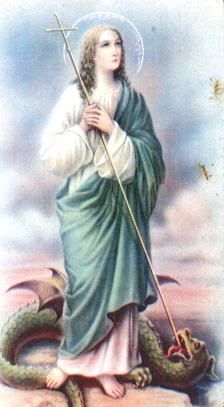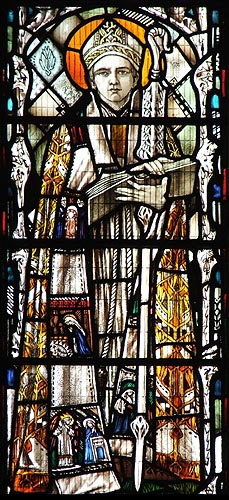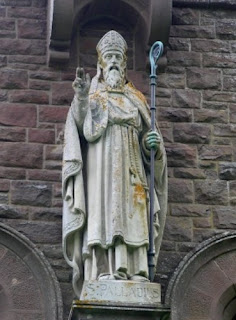Abdon and Sennen, as we know from ancient records, were Persians who suffered for Christ at Rome, probably under Diocletian, early in the fourth century. For their feast was already kept in the City in the year 354. It is believed that they had been brought to Rome either as hostages, or as prisoners of the Emperor, after his campaign in their country. In later days it was said that they were apprehended in Rome on the charge that they had interred, on their own farm, the bodies of Christians, which had been thrown out unburied. Whereat they were ordered to sacrifice to the gods, which they refused to do, and so were put into strict confinement. And afterwards when the Emperor returned to Rome, he had them led in chains in his triumph. And being thus dragged into the City and up to the idols, they spat upon them, for which they were cast to bears and lions. And because the beasts were afraid to touch them, they were butchered with the sword. And their corpses, with their feet bound together, were dragged before the image of the sun. Thereafter their remains were stolen away, and Deacon Quirinus buried them in his own house.
Collect:
O God, who on thy servants Abdon and Sennen didst bestow abundant grace to attain unto the crown of glory : grant unto thy servants the remission of all their sins ; that, by the intercession of the merits of thy Saints, they may be found worthy to be defended against all adversities, through Jesus Christ our Lord. Amen.
















